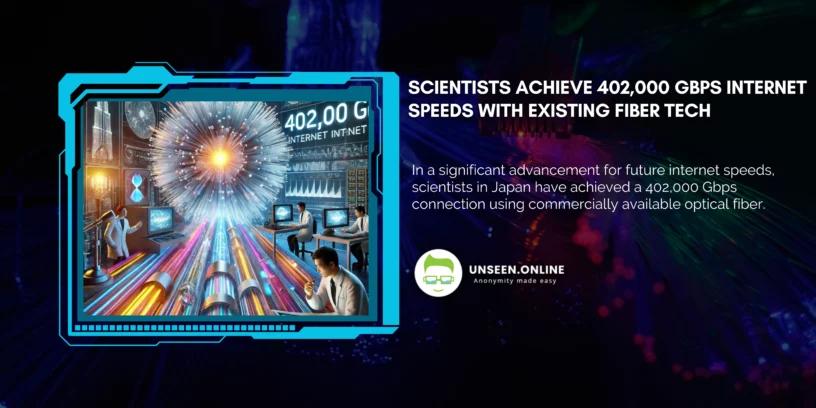In a significant advancement for future internet speeds, scientists in Japan have achieved a 402,000 Gbps connection using commercially available optical fiber. This breakthrough comes from Japan’s National Institute of Information and Communications Technology (NICT), in collaboration with various international labs.
Previously, Aston University in the UK, a partner on the project, recorded speeds of 301,000 Gbps over a single standard optical fiber. NICT has now surpassed this with a new test, reaching 402,000 Gbps.
The key to this achievement lies in utilizing additional wavelength bands within the optical fibers to enhance data transmission rates. NICT scientists tapped into the O-, E-, and S-bands, along with the conventional C- and L-bands, to amplify data transmission. This enabled the use of 1,505 wavelength channels, each achieving data rates exceeding 250 Gbps. When combined, these channels facilitated a theoretical 402,000 Gbps speed over a 50-kilometer fiber.
To achieve this, NICT developed six types of doped fiber optical amplifiers using rare earth ions like erbium, thulium, and bismuth. These amplifiers significantly increase the fiber transmission range and allow simultaneous amplification of many wavelength channels.
Despite the impressive results, commercialization of this technology remains uncertain. NICT is collaborating with Nokia Bell Labs and Hong Kong-based firm Amonics to further develop the optical fiber technology. The institute aims to extend the transmission range and ensure compatibility with existing field-deployed fibers.
This breakthrough offers a glimpse into the future of ultra-high-capacity, wideband internet systems, promising significantly faster data transmission capabilities.









